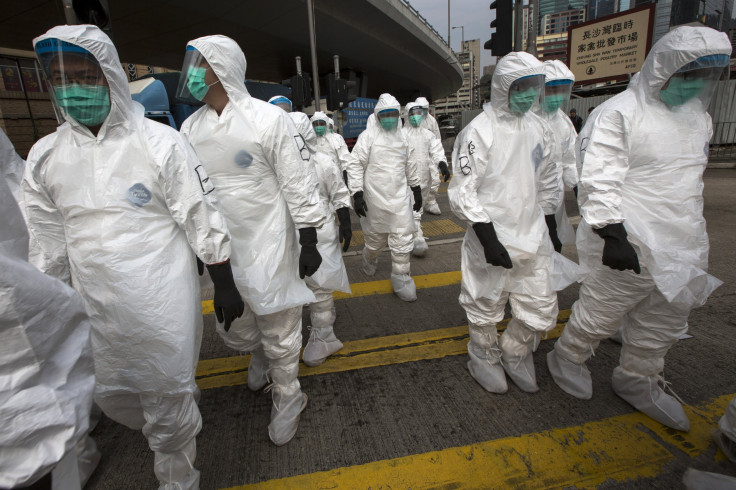Bird Flu Scare: Hong Kong Culls 15,000 Chickens, 6 People Infected In China

Hong Kong authorities began culling about 15,000 chickens at a poultry market on Wednesday, after some of the birds tested positive for bird flu. The market in Cheung Sha Wan in the southern district of Kowloon was shut down and authorities halted the import of chickens from the Chinese mainland for 21 days.
A few of the chickens, which were delivered to Hong Kong from a farm in the Guangdong province in China, had tested positive for the H7 variety of flu, Health Secretary Ko Wing-man said, according to The Associated Press (AP). The authorities are concerned about the further spread of the H7N9 strain of the virus, which could be deadly for humans as well.
Ko said that the authorities will "arrange to cull all the live poultry, around 15,000 in total," AP reported. On Tuesday, the Hong Kong government had announced that some birds tested positive for the H7 flu. A second round of tests reportedly showed that the birds were still infected.
In January, Hong Kong culled 20,000 chickens after one of the birds from Guangdong province tested positive for the H7N9 strain of the virus.
The latest culling comes even as six people in China’s eastern province of Zhejiang tested positive for the H7N9 strain of the virus, Xinhua reported on Wednesday. The report added that the patients were from the cities of Jiaxing, Jinhua, and Shaoxing, and one of them had died.
Since July, Zhejiang province has banned the trading of live poultry in urban areas as a precaution against the virus, according to Xinhua. People have also tested positive for the H7N9 virus in Shanghai Municipality, Fujian province and Guangdong province.
Elsewhere, the UK, Germany, Japan and the Netherlands have reported cases of the H5 variety of bird flu.
© Copyright IBTimes 2024. All rights reserved.












